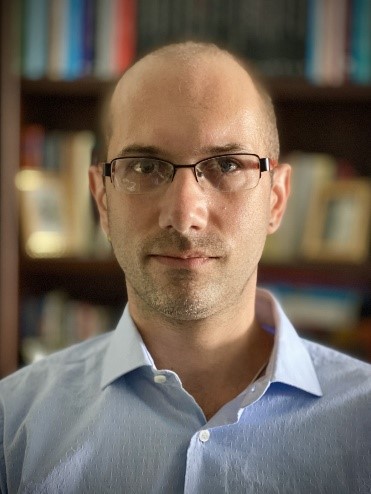
Collection
Sustainable Food Systems and Urban Food Policies
- Submission status
- Closed
Food systems play a central role in all societies and are fundamental to ensuring sustainable development. A sustainable food system delivers food security and nutrition for all in such a way that the economic, social and environmental bases to generate food security and nutrition for future generations are not compromised. Rapid urbanisation is challenging the existing food supply chain globally with impacts across production, trade, processing and consumption of food, consequently negatively transforming food systems. A key indicator of this disruption of food systems is the prevalent coexistence of micronutrient deficiency (or “hidden hunger”) and increasing rates of overweight and obesity globally. Nutritious foods have become increasingly unaffordable, while the nutrition-insensitive global food trade and business models have concomitantly encouraged and sustained unhealthy eating habits and changing norms of food cultures globally. The extensification and intensification of food production across the value chain to meet rising and changing demands arising from urbanisation pose significant social and environmental impacts which are detrimental to progress on meeting the sustainable development goals (SDGs) 2030 agenda.
This call is aimed at gathering inter- and trans- disciplinary and sectoral efforts to facilitate the sustainable development of urban food systems that is equitable, resilient, nutrition-sensitive and ensures the accessibility and affordability of nutritious food by all members of society. Given the multidimensional nature of food systems, such transition will require partnership and cooperation from different stakeholders across the food systems at local, national, regional, and global levels. We welcome empirical work (including case and comparative studies) that would help develop learning, and conceptual and perspective papers that present new viewpoints and arguments as well as alternative policies and approaches towards creating sustainable urban food systems. We invite papers about the topics listed below, as well as other topics of relevance to this call:
• Inclusive and integrated approaches for enhancing urban-rural linkages in the context of sustainable urbanisation and food systems
• Sustainable solutions for a sufficient supply of affordable, fresh and healthy food in the urban area, particularly among the disadvantaged and vulnerable communities
• Governance innovation, new models of shared responsibilities, partnerships and collaborative strategies for sustainable development of food systems
• Tools, indicators and metrics to assess and monitor sustainable development of food system at different scales
• Tools, indicators and metrics to support coherent and effective sustainable food policy design, development and implementation
• Identify, and where possible propose solutions to, the key risks, challenges, conflicts, and trade-offs in the operationalisation of the aforementioned.
Keywords: sustainable development; sustainable urbanisation; food planning; food system; food policy; nutrition security; food security; equity; environmental sustainability
Editors
-
Ee Von Goh
Dr. Ee Von Goh, University of Nottingham Malaysia, Malaysia She holds a PhD in Biosciences from the University of Nottingham Malaysia. She is a public health nutritionist with specific expertise in nutritional epidemiology and nutrition-sensitive and sustainable food policy. She was previously a Research Fellow at Crops for the Future Research Centre (CFFRC), where she was actively involved in interdisciplinary projects related to food value chain research and biocultural approaches to diversification of food production and consumption.
-
Maysoun A Mustafa
Dr. Maysoun A Mustafa, Science Foundation Ireland, Ireland. Maysoun completed her PhD in Biosciences from the University of Nottingham and is a certified Project Management Professional and a Fellow of the Higher Education Academy. She is a plant biologist with expertise in sustainable agriculture and food systems. She is currently a Scientific Programme Manager in the Science For Society Directorate of Science Foundation Ireland - the national foundation for investment in oriented basic and applied research in science, technology, engineering and mathematics in Ireland.
-
Johanna Schott
Dr. Johanna Schott, Thünen Institute, Germany. She is an agricultural economist with a doctorate from the University of Göttingen, Germany, and a Master in Tropical and International Agriculture, specialisation socio-economics, from the same university. She also holds a diploma in Applied World Business languages, branch Arabic, French and Economics (University of Applied Sciences Bremen, Germany). She does research on international food environments and coordinate a project on the impact of exports of German meat and milk products on developing countries.
-
Antonio Allegretti
Dr. Antonio Allegretti, Lancaster University, UK. He is an anthropologist and a Senior Research Associate in the Lancaster Environment Centre, Lancaster University. He works at the crossroads of development, academic and policy-oriented research in East Africa. He has done research on rural livelihoods and economies and contributed to multi-stakeholder policy debates around community-based climate adaptation and resilience. His current work focuses on governance of small-scale fisheries and the role of fish for food and nutrition security among vulnerable rural communities in Africa.
Articles (5 in this collection)
-

-
The Russia–Ukraine war disproportionately threatens the nutrition security of developing countries
Authors (first, second and last of 7)
- Zhongci Deng
- Cai Li
- Gang Liu
- Content type: Case Study
- Open Access
- Published: 17 November 2022
- Article: 40

-
A gender approach to time and food security: a case study of Egypt
Authors
- Noha E. ElKhorazaty
- Hassan H. M. Zaky
- Content type: Research
- Open Access
- Published: 17 October 2022
- Article: 34

-
Systematic review on ensuring the global food security and covid-19 pandemic resilient food systems: towards accomplishing sustainable development goals targets
Authors
- Keerththana Kumareswaran
- Guttila Yugantha Jayasinghe
- Content type: Review
- Open Access
- Published: 31 August 2022
- Article: 29

-
Determinants of under-five malnutrition, significant changes, and policy implications in the Ethiopian Demographic Health Survey, 2019
Authors
- Habtamu Wondimu
- Kassahun Dejene
- Content type: Research
- Open Access
- Published: 27 May 2022
- Article: 16





